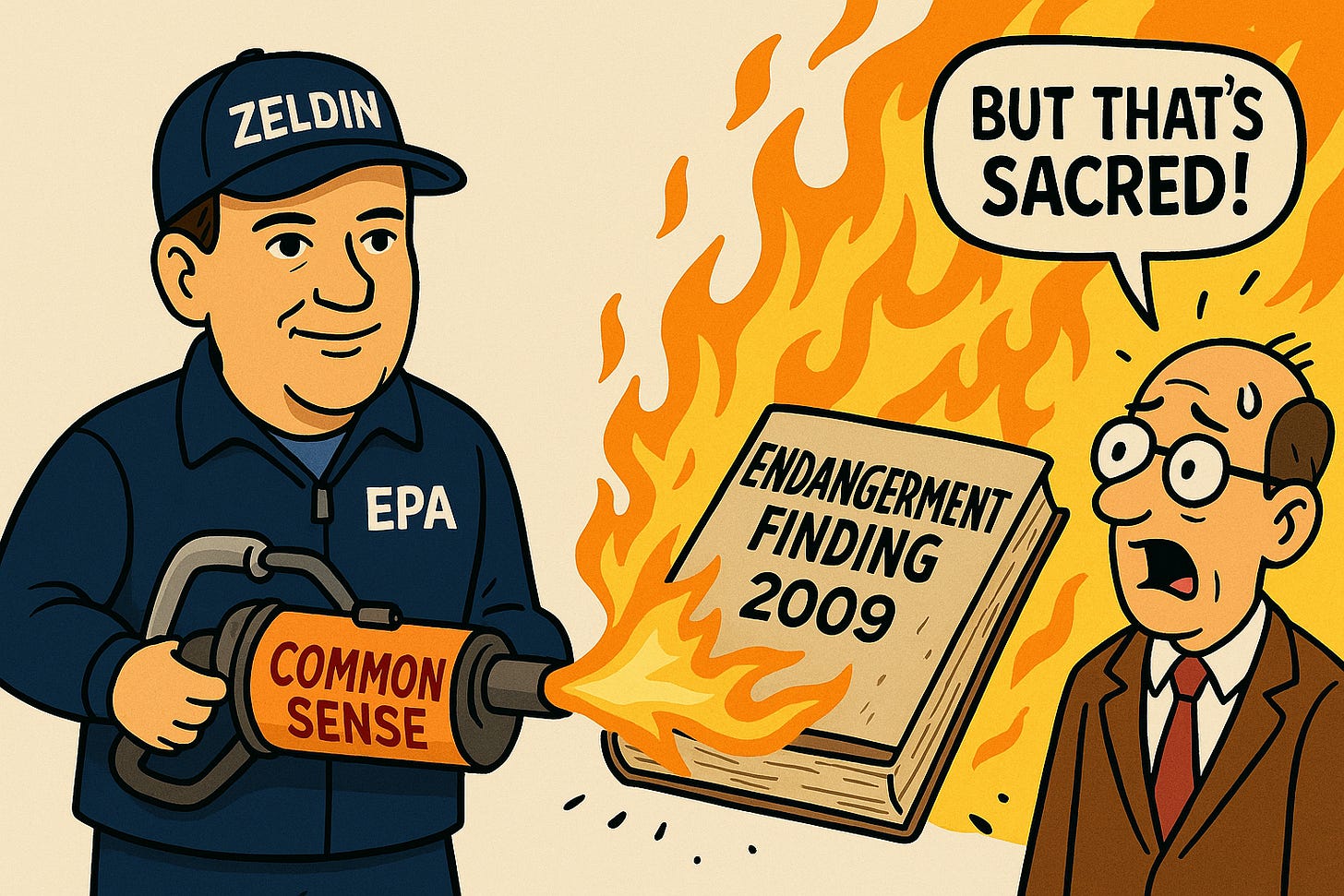EPA’s Bold Move: Zeldin’s Plan to Undo Costly Climate Rules
The Trump administration’s EPA, led by Lee Zeldin, proposes repealing the 2009 Endangerment Finding, aiming to reduce costly climate regulations and ease burdens on families and businesses, especially
🕒 Read time: ~3 minutes
We Told You It Was Coming… Here It Is!
A week and a half ago, I tipped you off about the EPA’s big push, led by Lee Zeldin, to scrap the 2009 Endangerment Finding. That Obama-era rule labeled CO₂ and other gases as health risks, piling on regulations that hit wallets hard across the country. Zeldin’s 300-page plan, announced in July, aims to save $54 billion annually by eliminating rules like Biden’s electric vehicle mandates.
Following the Legal Process
Zeldin’s EPA sticks to the Clean Air Act’s rulemaking requirements. The proposal includes a 45-day public comment period, set to begin after its Federal Register publication. Grounded in Supreme Court rulings like West Virginia v. EPA (2022), which limited the EPA’s overreach, this approach is tough to challenge in court. Unlike past executive oversteps, this open process puts public input and accountability ahead of backroom decisions.
Climate Science Remains Unsettled
The Endangerment Finding leaned on academics from universities pushing green agendas, but the science on what’s driving global warming is still up in the air. Earth’s atmospheric temperature has historically fluctuated over long periods, rising and falling significantly before any meaningful human carbon emissions, as seen in ice core data spanning millennia. A new Department of Energy report, cited in the proposal suggests CO₂-driven warming may not be as economically harmful as claimed. California’s 2020 wildfires emitted 127 million metric tons of CO₂, exceeding industrial reductions, suggesting forest management could be a more effective focus.
Relief for California’s Families and Businesses
Californians are getting slammed by high costs, and this repeal could bring real relief to families and businesses. The state’s cap-and-trade scheme, justified by flawed science and used to redistribute wealth, adds 10–15¢ per gallon at the pump, per a 2023 analysis. Electricity rates hit 32¢ per kilowatt-hour in 2024, nearly double the national average. The California Environmental Quality Act, tied to emissions rules, jacks up housing costs by $100,000 per home with endless red tape. Repealing this federal rule could enable Sacramento to reduce these regulations, lowering gas, power, and home prices. I wrote an extensive piece on these harmful regulations over at the California Globe.
A Federal Policy Shift
The repeal could open the door for sweeping federal regulatory fixes. The Endangerment Finding drove rules costing over $1 trillion, including Biden’s EV mandates, which added hundreds of billions to the deficit, per EPA estimates. Zeldin’s proposal pushes Congress to write clear laws instead of letting unelected bureaucrats overhaul our economy. This shift could prioritize policies that balance environmental goals with economic realities, avoiding measures with minimal global impact at high domestic cost.
So, Does It Matter?
This proposal is more than a regulatory adjustment—it’s an opportunity to prioritize affordability and accountability. For California, repealing mandates like AB 32 and SB 375 could make essentials like gas, electricity, and housing more accessible, helping families and businesses thrive. Nationally, it pushes for Congress to take back control, making sure big policy changes come from the people, not bureaucrats. Readers can submit official comments on the proposal at regulations.gov until September 21st. If it succeeds, this could steer policies toward what people actually need, creating a blueprint for governance that puts families first.



